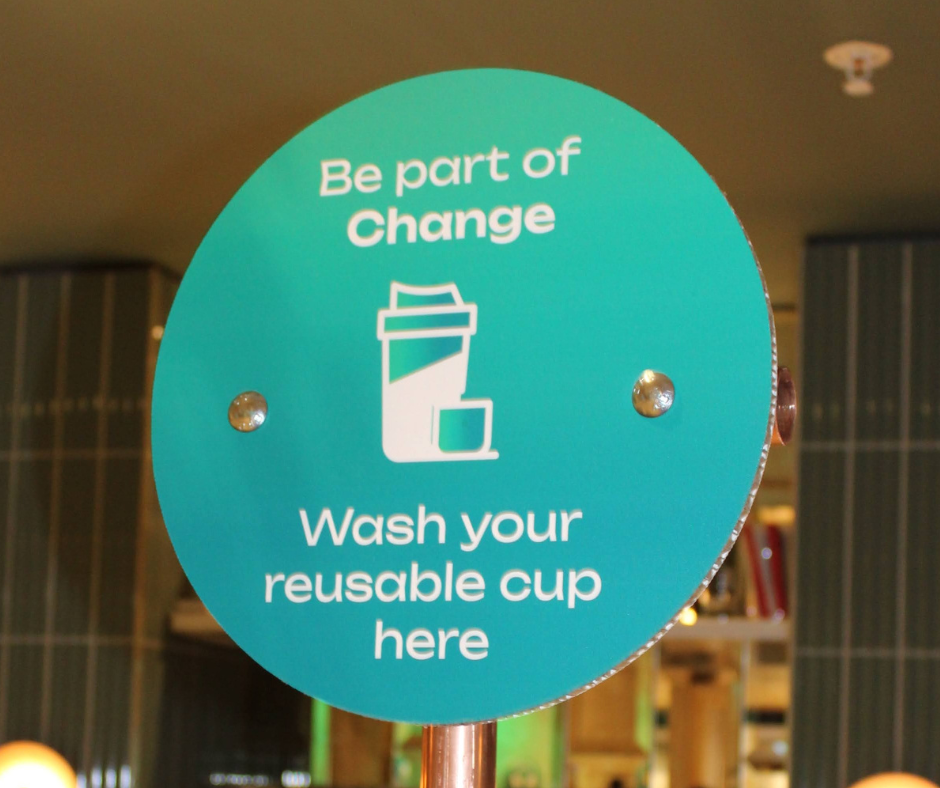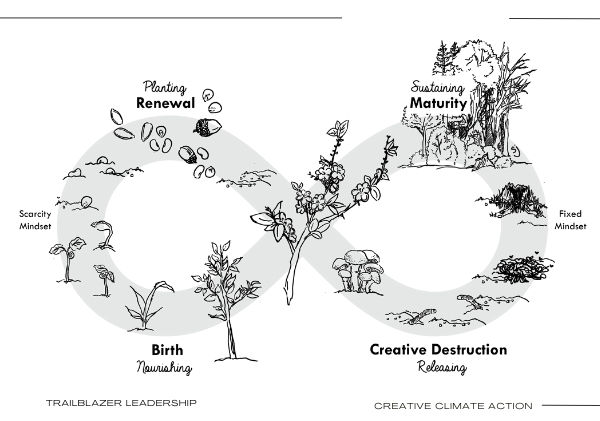This season we’ve been sharing some of our insights on how sustainability can be part of the everyday workplace, culture and arts through our Circular Economy Series. Recently we covered sustainable events in the creative sector and how planning ahead can be the most beneficial approach when aiming to embed the core principles of the circular economy.
For this section we’re taking a closer look at the conference sector, as these types of engagements can stand apart from traditional events with additional layers of coordination and production. Attention to detail is key when it comes to elevating a conference to a level that is impactful and compelling, and sustainability can play a big part in that.

Conferences and symposiums looking to incorporate sustainability prioritise environmental, social, and economic responsibility throughout their planning and execution, so here are the areas we encourage you to think about when organising conferences – of any size.
Signage
While a lot of display boards are made from plastics, ‘honeycomb core’ board is made from paper – where the core is usually made from 100% recycled paper. This removes a huge amount of waste from the landfill cycle – and any that does go to landfill easily biodegrades without any long term environmental impact. This material is also lightweight which means less space taken up in transit, lower transport costs, and fewer emissions as a result.
Catering
Research is key here. Aim to use local, independent suppliers who adhere to zero waste methods and source local, organic, in-season produce. This not only supports local producers but also significantly reduces the carbon footprint associated with food production and transportation. Work with your caterers on appealing vegetarian and vegan offerings, and use the platform of the event to promote responsible sourcing as part of your communications.
Refuse single-use. Catering is a big contributor to packaging waste at events, so work with your suppliers to ensure all serveware, cutlery and crockery is reusable.
 Refill & Refresh
Refill & Refresh
Provide water refill stations throughout the venue, where taps and jugs of water along with glasses are available to participants at all times, allowing them to rehydrate and refill water-bottles. Additionally, these stations can double up as areas for attendees to wash their reusable cups, supporting a zero waste approach to your event.
 Power Points
Power Points
Providing pop-up workspaces and power points where attendees can charge their devices, catch-up on emails and hold some side-bar meetings, is vital to ensure attendees feel they can still be productive between events and talks. A good option for these pop-up power points are solar generators or batteries – they are highly functional, as well as both portable and completely silent. This is a highly versatile sustainable solution – just plug your phone or laptop in to give it a go!
Carbon Footprint Analysis
Capturing and analysing data is key to understanding where you’re making progress on your sustainability pledge, to get into detail on what activities at your event are creating the biggest impacts – your ‘hotspots’. Reporting on your impact areas, where you’re making progress and where you need to improve, is a big part of the transition to sustainability and transparency.
When it comes to large scale events, we start the process by working with stakeholders to capture vital information around energy use – both at your venue and through associated travel and transport. We’ll also look at materials use, catering, water and waste, and use this information to calculate your event’s carbon footprint. Read more on our carbon footprint analysis.
Don’t forget to be transparent with participants and visitors about your attempts to hold a more environmentally responsible event, involving everyone, staff, suppliers and the audience alike, in the promotion of your event and your sustainable and circular efforts.
We hope these pointers will help any event organiser create a sustainable and engaging experience for all involved, avoiding single use plastics, reducing carbon emissions and aiming for waste reduction.
Native Events always aims to minimise the ecological footprint of any event by implementing practices such as reducing waste through using digital materials, making a switch to renewable energy sources, and encouraging attendees to opt for low impact transportation options.
For more information on eco-event production and solar energy solutions just contact us on +353 (0)83 020 4525 or email info@nativeevents.ie






